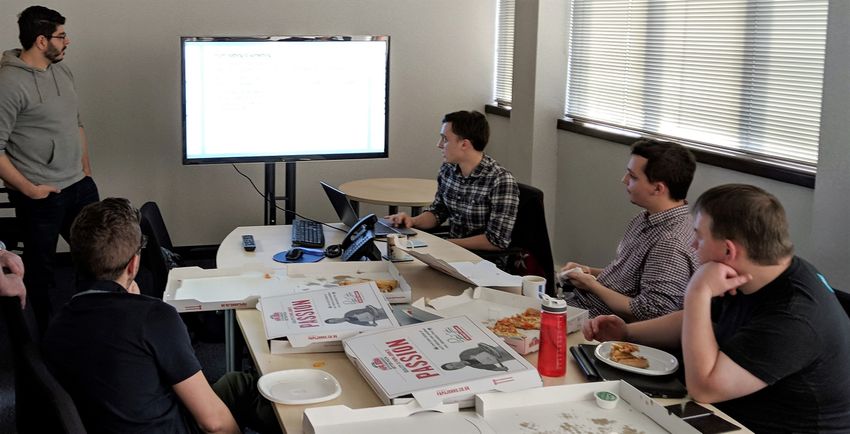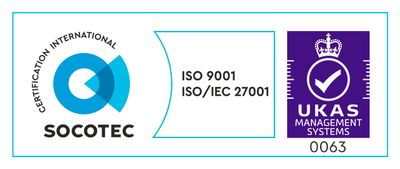Avco Hackathon 2018
Our yearly hackathon is an opportunity for our development team to show off their ability to think outside the box
It’s that time of the year again where we encourage our development team to let loose creatively and build some cool stuff. This year saw some great prototypes of new tools and projects aimed at making our client’s lives easier.

Xero Integration
One of Avco’s internal projects in recent months has been adopting Xero’s accounting services, including payroll.
Tahsin and Sam chose to dive into Xero’s developer API and look at how it could be utilised to integrate payroll to our existing scheduling and timesheets software in order to reduce the amount of work the administrative staff need to do to ensure these systems are kept in line. While the project ultimately ended incomplete due to other commitments, the pair learnt a lot about Xero’s API, something that will undoubtedly be useful as we look to expand into offering Xero integration services to other businesses.
A New UI for AnyComms Plus
AnyComms Plus is one of our most successful products, and has been in use for over 9 years at dozens of local authorities and schools as a secure transfer platform.
Though Anycomms Plus receives regular feature updates it has been some time since the interface has been refreshed, and it goes without saying that the design is showing its age.
Richard and Charlie decided the time was right for a dramatic UI refresh and set about creating a prototype. It features a wider, flatter, and more modern overall look, and the addition of a sidebar that makes navigating around the product much quicker.
The improvements speak for themselves, so see the before/after shots below. We’re really excited to show the new look to our customers and take it from a prototype to a shipped update!


Centralised Service MI
We provide a wide range of services, however Management Information (MI) and reporting for these is equally varied. Richard had a vision for a system that could plug into multiple services we provide and expose management information and reporting in a way that can be provided to customers. Ultimately, the goal is to create a single login page for all our customers that leads each to the MI that matters to them.
The prototype allowed users to login and view A2C stats and reports that are relevant to the Awarding Organisation they belong to, including data which is not currently self-serve. This included basic user management, so the environment’s users could access was managed at the customer level and they were able to administer their own users. Further functionality was to include scheduling of reports and recipients for key events - e.g. transfers during busy periods.
pkg-scan
Keeping up to date with package vulnerabilities is costly in time and effort, and like many services, has room to be automated. Luckily automation is something we specialise in at Avco, so Dan took up the challenge.
The aim of pkg-scan is to quickly tell a developer or product owner if their project’s dependencies has any known public vulnerabilities. It aims to be project agnostic for greater usability and is designed in a manner that allows it to be fully automated.
For the purpose of the hackathon, we leveraged existing vulnerability databases to integrate with and created a simple Go application that accepts a package list and provides back a list of any vulnerabilities along with any relevant details. This could be run ad hoc or as part of a schedule for better service automation.
pkg-scan takes a small, exploratory step in automated vulnerability testing. As a working proof of concept, this minimal viable product allows us to see what a full application like this might look like. The results it can produce also justifies further time and effort to be spent developing the app so that other services can benefit from our automation.
PDF Generation API
Generating PDFs is something Avco is surprisingly specialised in. It is a common feature of a web app, but we have built a number of projects that require either massive throughput, massive document size, or massive document complexity. We have multiple internal tools which depends on 3rd party libraries in order to fulfil our needs.
Aaron, having worked with some of these, decided to take things a step further and build a PDF generation server that could be used across project. The idea is simple - HTML is sent to an endpoint, and a PDF comes back built from that HTML. The prototype Aaron built did this well and could very possibly show up in the future as a finished and live service.
Conclusion
We had a lot of fun building and showcasing these projects and they offer a good starting point for some interesting improvements to our products and internal processes so all in all we consider this event a great success. After the showcase we decided to jointly award the winner’s trophy to the AnycommsPlus UI refresh and pkg-scan. Congratulations to the winning entries and a big thank you to everyone who took part.



